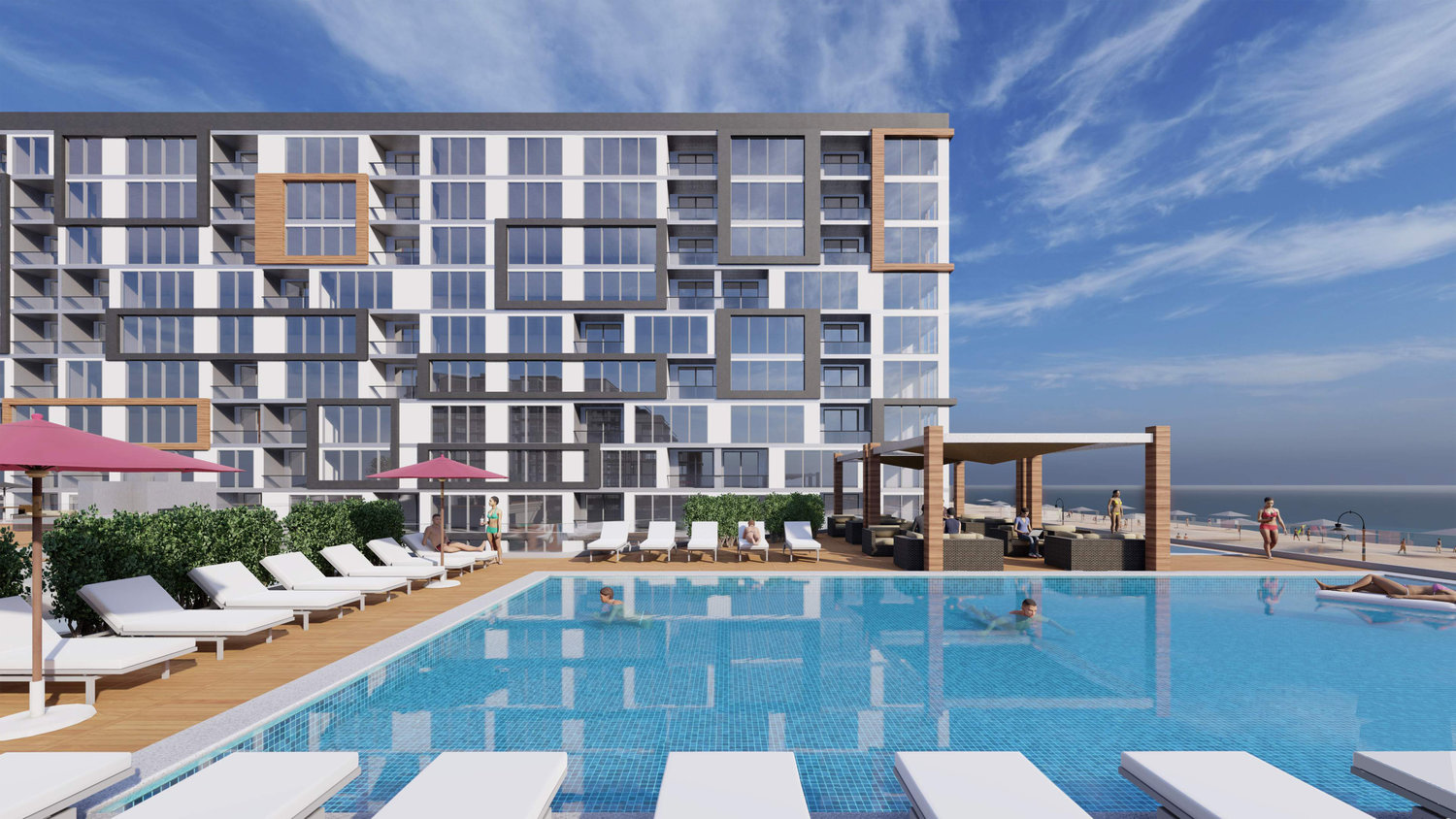Nassau gives thumbs up to Superblock project, citing benefits to Long Beach and jobs
Objections to tax breaks are overridden by city's need for taxes
After nearly 40 years of fits and starts, a project to build condominiums and rentals units on Long Beach’s Superblock — one of the largest real estate developments in the city’s history — was finally approved Tuesday night.
Nassau County economic development officials unanimously approved the $300 million deal with the Garden City developer Engel Burman — which includes a 25-year, $52 million tax abatement — after a two-and-a-half-hour-long virtual board meeting. At the end of a lengthy public-comment period, in which county Industrial Development Agency board members and residents shared their opinions, IDA Chairman Richard Kessel said, “I am thrilled that we got to this point.
“This is one of the most important projects the IDA has ever done,” Kessel added. “It will eliminate an eyesore in the city of Long Beach and eliminate the possibility of a lawsuit” by iStar, a Manhattan developer that failed to reach an agreement with the city to build on the site and has sued the city for lack of support.
“I know it’s not perfect,” Kessel. “I know there are questions. There always will be.”
He said he would form a committee made up of IDA board members, members of the public and Long Beach officials to monitor the project’s progress. Kessel said he would be a member of the committee, and that its creation would not be “a reflection on the developer,” but rather something the IDA routinely does.
The IDA board’s approval came after a hybrid public hearing last week, part in-person and part virtual. Some participants said they opposed the project because they objected to Engel Burman’s receiving tax breaks. Others, many of them members of trade unions, said they backed the project because the financially troubled city needs jobs, and they need work.
IDA board member Tim Williams, who had raised questions about the “math” of the project, saying he did not see how the figures would work out the way the developer had explained, nevertheless voted in favor.
“It would be irresponsible for anyone to say they did not have a chance to comment on the proposal,” Williams said.
IDA board member Amy Flores said, “The project is a step in the right direction for Long Beach. This piece of land has been barren. This is going to bring light to this land.”
But Roy Lester, a former president of the Long Beach Board of Education and an attorney in the city, objected strenuously to the deal’s payment in lieu of taxes, or PILOT, agreement. “You focus on the buildings,” he told the board. “We focus on the PILOT. This is a luxury building. Developers are chomping at the bit to build on the beach. Yet this developer needs a PILOT.”
Engel Burman said the project would not be economically feasible if it did not include the PILOT.
Kessel noted that the agreement would not raise taxes for residents. He and other IDA officials said that Long Beach would benefit from the taxes the developer would pay over 25 years.
What to do with the Superblock, six acres of what is now an empty field strewn with rocks, sand and weeds off the beachfront, has been a lingering question for Long Beach for the past 40 years. The land was once home to garden apartments and a bowling alley, but those buildings fell into disrepair and were razed in the 1960s. The city took over the property in the 1980s, and sold it to the Haberman family, developers who planned to construct high-rise residential towers.
The idea went nowhere. In the 1990s, Long Beach — which had long considered the site an eyesore in a city that was struggling to rebuild its image, bruised by the presence of run-down group homes for discharged psychiatric patients — issued a request for proposals. City officials hoped to hire a developer to build a hotel, a catering hall, a convention center, a restaurant and an assisted-living facility.
But those plans, too, failed to materialize.
The Manhattan developer iStar proposed luxury apartment buildings for the Superblock two years ago. IStar asked for tax breaks of up to $129 million, but its requests were denied twice by the county IDA. IStar filed a $100 million lawsuit against the city, claiming that Long Beach failed to support its bid for the tax breaks. The city filed a motion to dismiss the lawsuit.
Then, a year ago, Engel Burman, one of Long Island’s largest developers, announced plans to purchase the Superblock site from iStar Financial.
Engel Burman has a history in Long Beach. A decade ago, it built the Aqua, an eight-story, 36-unit condo building with expansive ocean views. The complex has an indoor pool, a fitness room, an oceanfront clubroom and a concierge.
Engel Burman began a low-key campaign to build support for the Superblock project, holding a series of meetings with residents, Chamber of Commerce leaders and city officials. But the developer ran into resistance to the tax breaks it wanted.
So Engel Burman proposed significant changes to its plan to build hundreds of condos and apartments, in the hope of making it more palatable to the City Council. It initially asked for a PILOT of 30 years. Then, seeking to pacify critics, it reduced the time frame to 25 years.
Engel Burman has also proposed that 12 percent of the apartment units be set aside as affordable housing, up from 10 percent.
In all, Engel Burman plans to build 200 condominiums and 238 apartments, along with a 1,000-space parking garage and some 6,500 square feet of restaurant and retail space. Under the PILOT program, the developer will pay $1.2 million in taxes in the first year, with increases up to $6.8 million after 25 years.

 44.0°,
Mostly Cloudy
44.0°,
Mostly Cloudy 





